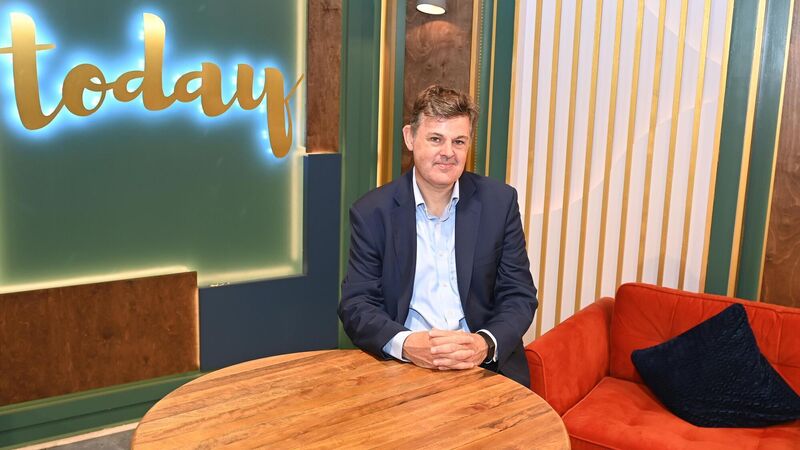Kevin Bakhurst exploring new location for RTÉ's Cork studio

Kevin Bakhurst on the set of the Today show, which is broadcast from RTÉ's Cork studio. Picture: Larry Cummins
RTÉ’s new boss has guaranteed the Cork studios will remain open, although a move within the city is possible as he plans to view two potential new studio premises on Wednesday.
Kevin Bakhurst said he would “like to do more rather than less” work from Cork, despite some concerns cutbacks at the broadcaster could lead to shuttered regional studios.












